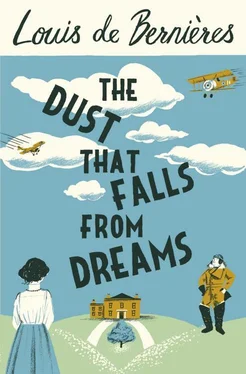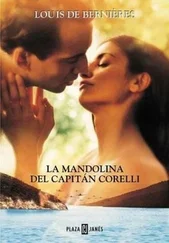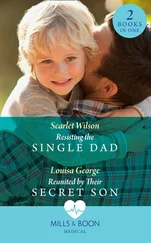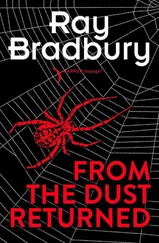So let’s remember the rotting horses and shattered houses, and let that memory make us thankful for the lives we lead now. That is how I want to look at your war work, as something to make me grateful for what’s left, and for what is still to come. I have been thinking that when this vein is exhausted, you will need to start mining a new one, and it has occurred to me that it would be marvellous if you were to do a portrait of Christabel, in one of her blue dresses, perhaps in profile, by a window. I can vividly imagine how well you would do it. Do ask her to write and tell us how her photographic exhibition goes next month. We are very sorry not to be seeing it.
As you know, Rosie and I are going to Ceylon, in the hope of making a new start. Why that is necessary, I think it is plain for all to see. You and Christabel will, I know, be pleased to learn that Rosie has been perking up considerably in recent days, and I am catching frequent glimpses of her as I remember her when she was a girl. That great cloud of unhappiness seems to be dispersing very gradually, and I live in the greatest hope that one day before too long she may be free of it entirely. Going to Ceylon does, however, leave me with the problem of what to do with my three aeroplanes.
I know you quite well enough to know that you will probably try and fly them without even one minute’s instruction, and so I am strictly enjoining you not to. If you start one up on your own, it will be inclined to trundle away without you in the cockpit. You should join an aero club, use the club’s riggers and fitters, and learn from an instructor like everyone else, and get your ticket properly. The one crucial thing I must tell you, and any instructor will tell you the same, is never never never try to turn back if your engine fails on take-off. Turning back is an almost irresistible impulse, and it is invariably fatal. Even crashing head-on into a tree or a house is better than what happens when you try to turn back on take-off. Promise me faithfully. I am worried for you. I fear that you are like a French cavalry officer, more brave than sensible.
Of course, if you lose power in flight, you pick a distant field and just go for it. Be very careful to watch out for power lines. Those planes can land on a sixpence, and you will be simply amazed at the hospitality and assistance that will be given to you by all the locals. I’d say it’s worth the inconvenience almost every time! Watch out for bulls, as well. I was charged by one in France, and it stove in the side of my Camel. It got its head and horns entangled in the interior bracing wires, and it was the Devil’s own job trying to disengage it. In the end the farmer fetched a hacksaw and we cut one of its horns off. It was probably the most frightening thing I had to do in the whole of the war, and the d--d thing kept standing on my foot and bellowing. After that the plane was unflyable and had to be collected by the tender. In retrospect it would have been more sensible simply to cut the wires, but in the heat of the moment the old man and I can’t have been thinking straight. I remember thinking that if we cut the wires, well, I never would get off the ground, and then I didn’t anyway. Somewhere near Arles there is a one-horned bull called Pierre. I wonder how he is. Do horns regrow?
And do please take out insurance.
I am sincerely hoping that there might eventually be opportunities in aviation in Ceylon, but in the meantime it’s tea for me. It’s lucky I like it, and of course one can do the most marvellous things there. When we are settled in, it would be a delight if you and Christabel were to come out and see us. You can bring your golf clubs, and do bring your Purdeys and keep us satiated with duck.
The gong has rung for supper. The house reverberates. Time to sign off. We shall miss you!
Chin-chin, and love to the ever-glorious Christabel,
Daniel P. (ex RAF, soon to be tea planter)
PS And for God’s sake don’t fly blotto. We sometimes used to do that, and now the thought of it fills me with horror.
PPS I came across my father-in-law in the dining room recently. He was trying out a cast-iron contraption with a golf ball suspended on it from a rod. There is a dial with a needle on it. It is called the McCosh Patent Driveometer, and the idea is that you whack the captive golf ball and the dial shows how far it would have gone. In his own way, the man is a genius, n’est-ce pas ? He is now working on a version that tells you if have sliced or hooked it. This will be the McCosh Patent Stratedrive.
MR HAMILTON MCCOSH was practising his putting on the drawing-room carpet with his new McCosh Patent Flagsure Stainless Putter when Millicent came in to tell him that someone was at the tradesmen’s door, hoping to speak to him. Putter in hand, he went out of the front door, and round the side of the house, where he found a woman of about thirty, accompanied by a boy of twelve. They were respectably dressed, but in clothes that had been greatly patched up. ‘Poor people who take pride in themselves,’ thought Mr McCosh approvingly. The woman was brown-haired, with early silver streaks, and her pale face was thin and pinched. She had once been very pretty.
‘Good morning,’ said Mr McCosh. ‘I am Hamilton McCosh, master of this house. How may I be of assistance?’
‘We’ve come to thank you, sir,’ said the woman.
‘Me? What have I done?’
‘I mean, thank all of you, for what you did. I mean, taking care of my Edward here, and calling the ambulance, and going to hospital with him, and visiting him an’ that, and bringing him food.’
‘That was my daughters,’ said Mr McCosh.
‘We think you paid the hospital bill,’ said the woman.
‘What makes you think it was me?’
‘Who else would it be, sir? It was quite a lot. It was more than we could’ve managed in a month of Sundays. They wouldn’t tell us, but we think it was you.’
‘The point is, is the bairn all right?’
‘He’s all right, sir. Edward, speak to the gentleman, would you?’
Mr McCosh held out his hand, and the boy shook it. ‘I like a laddie who looks you in the eye when he shakes hands,’ said McCosh, looking into the boy’s large, intelligent, sensitive brown eyes. ‘I suppose you’re called Edward after the late King. A good name to have.’
‘I like it, sir,’ replied the boy. ‘I don’t want any other.’
‘So, young fellow, are you all right now? Completely cured? Your legs seem very straight.’
‘I’m not fully strong yet, sir, but I expect to be. I’m off the crutches. It still hurts. They ache like billy-o at night, sir. And I’m limping rather a lot.’
‘You’re still growing. That’s lucky for you. Growing will get rid of that.’
‘I’ve got to do lots of walking to get them strong again, sir.’
‘Lots of walking?’
‘Yes, sir.’
‘Are you at school?’
‘Well, he was, sir,’ said his mother. ‘He was bright too. They said he’d go far. But we can’t afford it, so now he’s out and he’s just doing errands ’til something comes along.’
‘And his father?’
‘Killed, sir. He was a wheelwright. In the Horse Artillery. I take in washing, sir. I do what I can. All the widows are taking in washing, and patching and mending. The competition is something terrible.’
‘Other children?’
‘Only a dead one, sir. It was the influenza.’
Mr McCosh looked at Edward and said, ‘Do you see this big house? Well, my grandfather lived in a little croft made of turf and lived off practically nothing. Are you really very bright?’
Читать дальше












